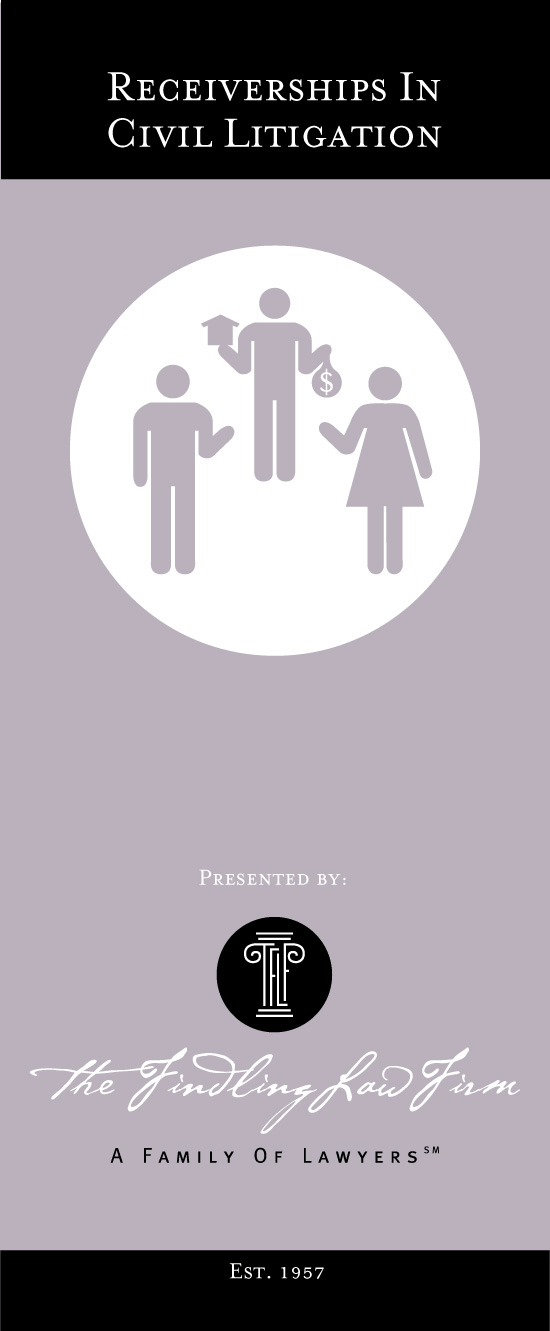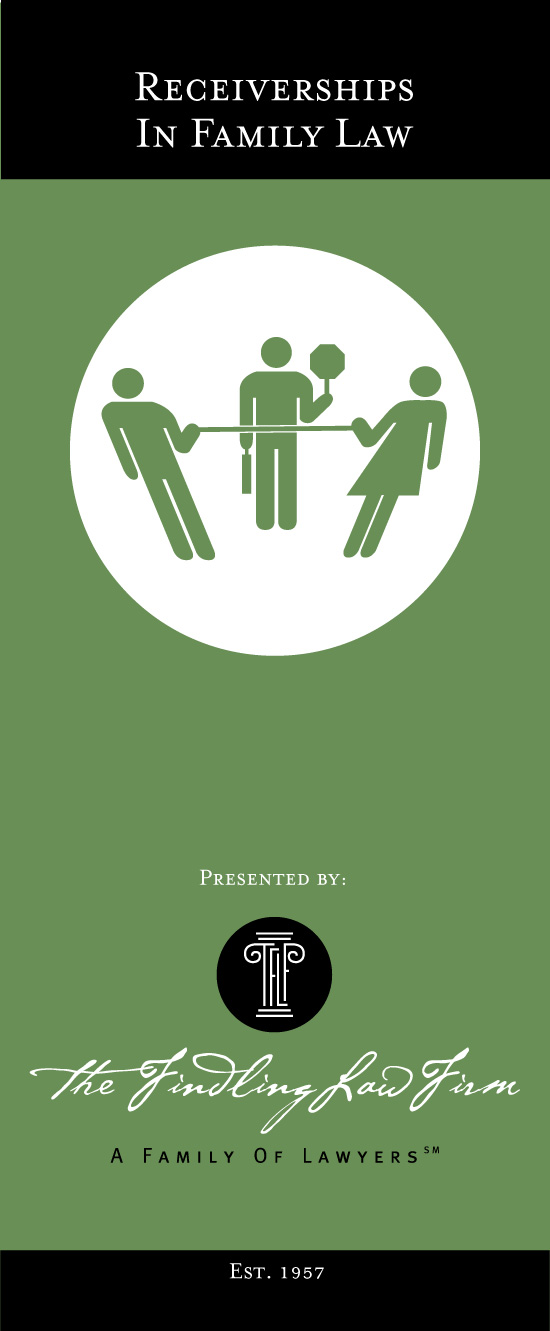Receivership
What is receivership?
A receivership is a remedy that is authorized by a court’s equity powers. Upon appointment, the Receiver becomes an officer of the court to receive, care for, administer and dispose of property under the orders of the court. The Receiver’s powers and responsibilities are defined by the order of appointment.
A Receiver is commonly appointed to:
- enforce the collection of child and spousal support;
- administer and market real property;
- operate a business;
- collect on a judgment;
- recover fraudulently conveyed property;
- partition an interest in property or a business;
- stay foreclosure or a tax forfeiture of real property;
- liquidate pension and retirement plans (with the tax and penalty paid by the support payer);
- establish an annuity to fund future support obligations; and redeem a workers compensation claim.
How is a receiver appointed?
Most courts expect that litigants will have attempted other means for enforcement prior to requesting the appointment of a Receiver. Should the appointment of a Receiver be necessary, it is accomplished by filing a motion or a complaint under one of the prescribed statutory provisions.
A Receiver is appointed at a hearing before the court at which time an order is entered. The order of appointment should include the following:
- Name and identifying information of the person or entity under Receivership;
- Assets to be administered under the Receivership; and
- Provision for bond for the Receiver.
The order need not include every consideration or possibility. This would be unduly onerous. Rather, reliance on the judgment or orders of the court, State and Federal law and the Michigan Rules of court will address most issues.
 Receiverships in civil litigation
Receiverships in civil litigation
A Receiver can be particularly helpful in both pre- and post-judgment proceedings. Due to the limitations of creditor’s remedies, a Receiver may be the only remedy available to effectuate enforcement. The order appointing receiver grants unique powers to the Receiver to obtain compliance with the court’s orders.
David Findling is an acknowledged expert in the enforcement of judgments and property obligations. He has served as a receiver in both state and federal courts and maintains a blanket surety bond. As Receiver, Mr. Findling and his staff have the expertise and resources to administer businesses and property that vary widely in nature, size and complexity.
In 2000, Mr. Findling was named Michigan Lawyer of the Year by Lawyers Weekly for his work as a receiver.
 Receiverships in family law
Receiverships in family law
A Receiver can be particularly helpful in both pre- and post-judgment enforcement of support and property obligations. Due to the limitations of the Friend of the Court and the limited resources of the support payee, a Receiver may be the only remedy available to effectuate enforcement. The order appointing receiver grants unique powers to the Receiver to obtain compliance with the court’s orders.
As Receiver, Mr. Findling and his staff have the expertise and resources to administer businesses and property in marital estates that vary widely in nature, size and complexity. As a Receiver, he annually collects hundreds of thousands of dollars of unpaid support.
David Findling is an acknowledged expert in the enforcement of support and property obligations. He has served as a receiver in both state and federal courts and maintains a blanket surety bond. In 2000, he was named Michigan Lawyer of the Year by Lawyers Weekly for his work as a receiver.
 Receiverships in probate
Receiverships in probate
A Receiver can be particularly useful in the administration of a probate estate. Regularly, a personal representative or conservator is confronted with the need to administer real property or a business. In addition to staying a mortgage or tax foreclosure on real property, a Receiver can take action to recover assets wrongfully transferred from an estate or to operate a business on the estate’s behalf.
Probate courts are conferred with the same jurisdiction as circuit courts to appoint a Receiver. MCL 600.847 provides:
In the exercise of jurisdiction vested in the probate court by law, the probate court shall have the same powers as the circuit court to hear and determine any matter and make any proper orders to fully effectuate the probate court’s jurisdiction and decisions.
A Receiver would serve under the purview of the probate court with the same powers as provided to a Receiver appointed by a circuit court.
David Findling is an acknowledged expert in Receiverships. He has served in both state and federal courts and maintains a blanket surety bond. In 2000, he was named Michigan Lawyer of the Year by Lawyers Weekly for his work as a receiver. Mr. Findling and his staff have the expertise and resources to administer businesses and property in estates that vary widely in nature, size and complexity.
